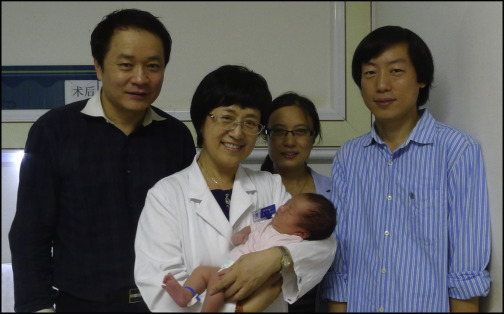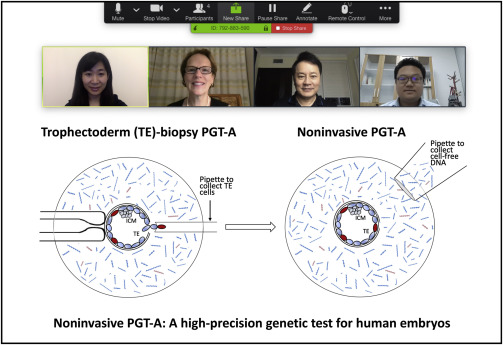Peking University, August 15, 2019: A commentary from Lee Shau-kee Professor Xiaoliang Sunney Xie of Peking University, “Diseases have no borders, Neither should research!” has appeared in Cell Magazine. After working 20 years at Harvard, the former Mallinckrodt Professor of Chemistry and Chemical Biology relocated to PKU on July 1st, 2018, just before the US-China tariff war started. His Sino-US collaborative research on genomic screening of newborns has benefited both China and US. What is his perspective on the US-China conflict as a scientist?
Diseases Have No Borders, Neither Should Research!
Xiaoliang Sunney Xie1,*
1Biomedical Pioneering Innovation Center and the Beijing Advanced Innovation Center for Genomics, Peking University, Beijing, China
*Correspondence: sunneyxie@pku.edu.cn
DOI: https://doi.org/10.1016/j.cell.2019.07.053
Abstract: In response to recent anti-Chinese sentiment in the US, Sunney Xie uses his own experiences to assert that American ideals should not be replaced by nationalism and populism and that everybody wins in Sino-US scientific collaborations, contrary to what Americans are led to believe: that China is the sole beneficiary.
After 20 years of being a tenured professor at Harvard, I relocated to Peking University (PKU) in July of 2018, bridging my past with my future (Xie, 2019). Little did I expect that, only 6 days after I began my tenure at PKU, the United States would implement the first China-specific tariffs. Things escalated beyond simple economics in November, when the National Institutes of Health (NIH) ordered hundreds of US institutions to investigate many US-based and NIH-supported scientists, primarily of Chinese descent, who conducted collaborative research in China. This led to the closing of several laboratories and hardships for many researchers in US institutions. Many Chinese scientists are denied visas to the United States to attend international meetings. These events portended unsettling times to come.
Many people have asked why I decided to leave Harvard for PKU. It was by no means an easy decision; it involved many considerations, such as my love for my parents, my alma mater PKU, the motherland, and so forth. What really tipped the balance, in the end, was science. I simply would have better research opportunities in Beijing, which is a true reflection of what China has achieved during my years spent in America.
My own life has taken shape from two of the world’s greatest cultures: one that I inherited through my roots, the other where I chose to spend most of my adulthood. When I first arrived in America, I was greatly inspired by the Founding Fathers’ ideals for freedom and democracy. As an international student from China, I was embraced by my American professors. In my 20 years at Harvard as an immigrant and now a US citizen, support from my colleagues helped me to realize my dreams as a scientist and rise in academia. Such inclusiveness, in a broader sense, helped make America a great country. Thus, while I was deeply offended by the perception that Chinese students and collaborators are spies, I was emotionally touched by recent declarations of support made by many of America's top universities, among them UC Berkley, Stanford, Yale, Columbia University, MIT, University of Chicago, Johns Hopkins University, and Caltech, to their international communities. The resounding message put forth by these universities is that America, and its universities, must remain open.
My personal experience is an example of how US-China collaboration benefits the whole world, not just China. While still on the Harvard faculty, I shuttled between Boston and Beijing and collaborated with my PKU colleagues Jie Qiao and Fuchou Tang on a new approach to improve the genetic testing of embryos during in vitro fertilization. Using a high-precision single-cell whole-genome amplification method (multiple annealing and looping-based amplification cycles, MALBAC) originally developed by my Harvard group (Zong et al., 2012), my PKU colleagues and I achieved the first successful demonstration of a birth of a “MALBAC baby” in 2014 (Yan et al., 2015). Since then, China has had more than a thousand MALBAC babies come into the world free from the genetic disorders of their parents, which exemplifies the power of precision medicine.
The first MALBAC baby was born in Beijing on September 19, 2014
Diseases have no borders, and neither should research! We did not do the research to serve China alone. There are thousands of monogenetic diseases in the world, suffered by people of all ethnic groups. I am thrilled that this technology has been adopted in the United States so that families worldwide can now benefit from the fruits of this international effort.
Since last year, I have been able to continue performing medically impactful research via US-China collaborations, but making contributions from the China side. Recently, my research team has been collaborating with Dr. Catherine Racowsky at Brigham and Women’s Hospital, one of the most prestigious hospitals in the United States, on the development of a noninvasive version of genetic testing. In lieu of embryo biopsy, our method detects DNA leaked from an embryo to the spent culture, which is not only noninvasive but also holds promise to be more precise and reliable, and clinical trials are now under way in both countries (Huang et al., 2019). Once again, the collaboration is mutually beneficial, contrary to what Americans are often led to believe—that China is the sole beneficiary in Sino-US scientific and technological collaborations.
A teleconference between the US and Chinese teams on the noninvasive embryo genetic testing
During my years at Harvard, one of the most inspiring commencement speeches was given by Bill Gates, who represented some of the American ideals that helped shaped me. As the most successful Harvard dropout, Gates led the revolution of information technology, which helped globalize the world. While this represents his own personal realization of the American Dream, the information technology revolution helped to propagate the American Dream worldwide. Gates went on to found the Bill & Melinda Gates Foundation in order to use science and technology to save millions of lives in Africa and around the world, which exemplifies the American ideal of helping the world. It is my hope that such dreams and ideals will not be replaced by nationalism and populism in any country.
Chinese scientists are beginning to contribute world-class science in many fields, thanks to China’s reform and economic growth. However, science is international. To pursue new knowledge, understand nature, and tackle the truly important issues facing our time, Chinese scientists and scientists around the world must collaborate. In doing so, everyone wins.
Science transcends politics. As the French chemist Louis Pasteur famously said, “Science knows no country, because knowledge belongs to humanity, and is the torch which illuminates the world.”
Acknowledgments
The author thanks his groups and collaborators, both in the United States and China, and NIH for financially supporting his Harvard group on the initial technical development on single-cell genomics and Peking University, Beijing Municipal Science and Technology Commission, National Key Technologies Research and Development program, Yikon Genomics, and Beijing Advanced Innovation Center for Genomics for financially supporting the translational research in China.
Declaration of Interests
X.S.X. is a co-inventor of MALBAC, a single-cell whole-genome amplification method (US patent 9617598B2), and a cofounder and shareholder of Yikon Genomics.
References
1. Huang, L., Bogale, B., Tang, Y., Lu, S., Xie, X.S., and Racowsky, C. (2019). Noninvasive preimplantation genetic testing for aneuploidy in spent medium may be more reliable than trophectoderm biopsy. Proc Natl Acad Sci USA. Published online June 24, 2019. https://doi.org/10.1073/pnas.1907472116
2. Xie, X.S. (2019). Xiaoliang Sunney Xie: Setting Sail and Journeying Home (Peking University).
http://newsen.pku.edu.cn/news_events/news/people/ 8751.htm
3. Yan, L., Huang, L., Xu, L., Huang, J., Ma, F., Zhu, X., Tang, Y., Liu, M., Lian, Y., Liu, P., et al. (2015). Live births after simultaneous avoidance of monogenic diseases and chromosome abnormality by next-generation sequencing with linkage analyses. Proc. Natl. Acad. Sci. USA 112, 15964–15969.
4. Zong, C., Lu, S., Chapman, A.R., and Xie, X.S. (2012). Genome-wide detection of single-nucleotide and copy-number variations of a single human cell. Science 338, 1622–1626.
Source: Xie, Diseases Have No Borders, Neither Should Research!, Cell (2019), https://doi.org/10.1016/j.cell.2019.07.053

